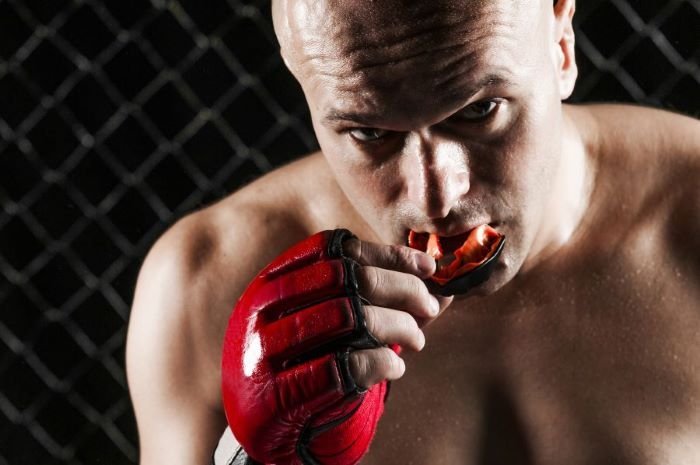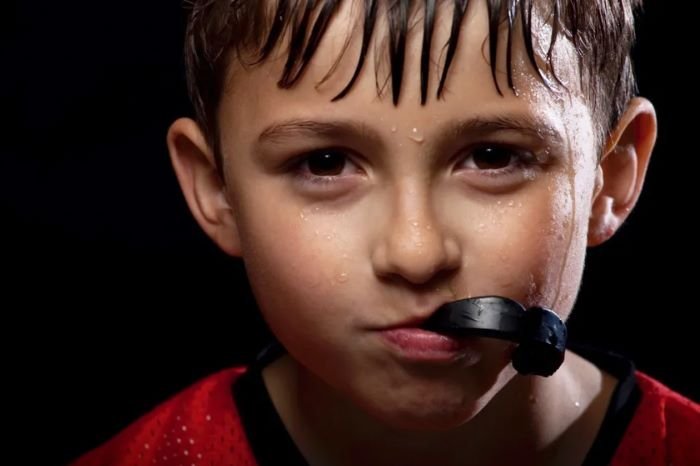Mouthguards: Essential Protection for Every Athlete
Mouthguards are essential for preventing injuries to the teeth, gums, and jaw during sports and other physical activities.

Introduction to Mouthguards
What exactly is a mouthguard, and why is it so important? If you’re into sports or have kids who play, understanding the role of mouthguards can be a game-changer. Mouthguards are protective devices worn over your teeth to shield your mouth from injuries, particularly during physical activities. Whether you’re an athlete, a parent, or just someone curious about safety in sports, this guide will break down everything you need to know about mouthguards.
Mouthguards are essential for preventing injuries to the teeth, gums, and jaw during sports and other physical activities. Their primary function is to absorb and distribute the force of an impact, reducing the risk of severe dental damage. In addition to protecting teeth, mouthguards also help safeguard the soft tissues of the mouth, such as the tongue, lips, and cheeks, from cuts and bruises.
Types of Mouthguards
When it comes to mouthguards, one size doesn’t fit all. There are three main types you should know about:
Stock Mouthguards
These are pre-made and ready to wear. They’re the most affordable but often the least comfortable, offering minimal adjustability. Stock mouthguards are typically found in sporting goods stores and come in limited sizes. While they provide some level of protection, their fit is usually not ideal, which can make them less effective and more uncomfortable to wear.
Boil-and-Bite Mouthguards
A popular choice for many athletes, these mouthguards are softened in boiling water, then molded to fit your teeth. They strike a good balance between cost and customization. The boil-and-bite method allows the user to create a more tailored fit than stock mouthguards. After boiling the mouthguard, you bite into it to create an impression of your teeth, which helps to ensure better comfort and protection.
Custom-Fitted Mouthguards
Made by a dentist, these offer the best fit and protection. They’re crafted from a mold of your teeth, ensuring maximum comfort and effectiveness. Custom-fitted mouthguards are often recommended by dental professionals because they provide the highest level of protection and comfort. They are especially beneficial for athletes involved in high-impact sports or those with braces or other dental appliances.
Materials Used in Mouthguards
Mouthguards are typically made from resilient materials designed to absorb and dissipate impact. Common materials include:
Ethylene Vinyl Acetate (EVA)
Widely used for its flexibility and shock-absorbing properties. EVA is a popular choice for both boil-and-bite and custom-fitted mouthguards because it can be easily molded to fit the teeth while providing a cushioned barrier against impacts.
Polyurethane
Known for its durability and resistance to wear and tear. Polyurethane mouthguards are often used in high-contact sports due to their robust nature and ability to withstand repeated impacts without losing their protective qualities.
Latex-Free Options
Ideal for those with latex allergies. Many mouthguards are now made from latex-free materials to accommodate individuals with sensitivities, ensuring everyone can benefit from their protective features.
Recent innovations have led to the development of materials that are even more effective at protecting your teeth and gums while offering greater comfort. Advanced materials may include multi-layer designs that enhance shock absorption and distribution, as well as antibacterial coatings to help maintain oral hygiene.
How to Choose the Right Mouthguard
Selecting the right mouthguard can be tricky, but keeping a few key factors in mind can help:
Fit and Comfort
The mouthguard should fit snugly without restricting breathing or speaking. A well-fitting mouthguard should cover the teeth and part of the gums comfortably without causing irritation or excessive movement. If a mouthguard is too loose or too tight, it can be ineffective and uncomfortable to wear.
Sport or Activity
Different sports may require different levels of protection. For example, a boxer will need a more robust mouthguard compared to a basketball player. Consider the nature of the sport and the potential risks involved when choosing a mouthguard. High-impact sports like football, hockey, and boxing typically require more substantial protection than sports with lower contact levels.
Durability and Protection
Ensure the mouthguard is durable enough to withstand impacts and provides adequate protection for your specific needs. Check for signs of wear and tear regularly and replace the mouthguard as needed to maintain optimal protection. A durable mouthguard will offer consistent protection over time, reducing the risk of injury.
Benefits of Wearing a Mouthguard
The benefits of wearing a mouthguard go beyond just protecting your teeth. Here are some key advantages:
Preventing Dental Injuries
Mouthguards can prevent chipped or broken teeth, root damage, and even tooth loss. By absorbing and distributing the force of an impact, mouth protectors reduce the likelihood of severe dental injuries that can be painful and costly to treat.
Reducing Risk of Concussions
By absorbing some of the impact forces, mouthguards can help reduce the risk of concussions. While they are not a foolproof solution, mouth protectors can provide an additional layer of protection by helping to stabilize the jaw and reduce the transmission of impact forces to the brain.
Protecting Soft Tissues
They also shield the lips, tongue, and inner lining of your cheeks from cuts and bruises. Mouthguards act as a barrier, preventing teeth from cutting into the soft tissues of the mouth during an impact.
Proper Care and Maintenance of Mouthguards
To ensure your mouthguard lasts and remains effective, proper care is essential:
Cleaning and Storage Tips
After each use, give your mouthguard a rinse with cold water. From time to time, clean it using mild soap and a toothbrush. Make sure to store it in a case with good ventilation. Avoid using hot water, which can warp the mouthguard, and keep it away from direct sunlight or heat sources that can cause it to lose its shape.
When to Replace Your Mouthguard
Replace your mouthguard if it shows signs of wear, has become uncomfortable, or if it no longer fits properly. Regularly inspect your mouthguard for cracks, tears, or deformation, and replace it immediately if any damage is found.
Mouthguards for Specific Sports
Different sports have different requirements when it comes to mouth protection. Here’s a quick overview:
Football
Requires a sturdy, full-coverage mouthguard. Football is a high-contact sport with a high risk of dental injuries, so a durable and well-fitted mouthguard is essential for protection.
Basketball
A lighter, yet effective mouthguard works well here. Although basketball is not as high-contact as football or boxing, there is still a significant risk of collisions and falls that can result in dental injuries.
Boxing and MMA
High-impact sports need robust, custom-fitted mouthguards. Combat sports like boxing and MMA involve direct blows to the face, making a custom-fitted mouthguard crucial for maximum protection.
Hockey
A combination of upper and lower jaw protection is often recommended. Hockey players are at risk of dental injuries from high-speed pucks, sticks, and collisions, so a comprehensive mouthguard is essential.

Mouthguards for Non-Contact Sports
Even in sports with less physical contact, mouth protectors can be beneficial:
Gymnastics
Protects against falls and collisions. Gymnasts often perform high-flying routines and acrobatics that can result in falls, making mouth protectors a wise precaution.
Mountain Biking
Shields teeth during rough rides and potential falls. Mountain biking involves navigating rough terrain at high speeds, increasing the risk of falls and collisions with obstacles.
Skateboarding
Reduces the risk of dental injuries from spills and tricks. Skateboarders often perform tricks that can result in falls, making mouthguards an essential piece of protective gear.
Mouthguards for Children and Teens
For younger athletes, mouth protectors are crucial:
Importance of Early Use
Starting early helps instill the habit of wearing a mouthguard and provides continuous protection as their bodies grow. Introducing mouthguards at a young age helps children understand the importance of dental protection and can prevent serious injuries during their developmental years.
Choosing the Right Mouthguard for Young Athletes
Look for adjustable, comfortable options that can accommodate growing teeth and jaws. Custom-fitted mouth protectors may need to be replaced more frequently for young athletes as their teeth and jaws grow and change.
Common Myths About Mouthguards
Let’s bust some common myths:
Do They Hinder Breathing?
A properly fitted mouthguard shouldn’t hinder breathing. Custom-fitted options are especially good at ensuring this. Many athletes worry that mouth protectors will make it difficult to breathe, but with the right fit, this is not an issue.
Are They Only for Contact Sports?
No, mouth protectors can be beneficial in any sport where there’s a risk of falling or collision. Even non-contact sports can involve falls and collisions that can result in dental injuries, making mouthguards a valuable piece of equipment for a wide range of activities.
The Role of Dentists in Mouthguard Customization
Dentists play a crucial role in ensuring the best fit and protection:
How Dentists Create Custom Mouthguards
They take an impression of your teeth to create a mold, then design a mouthguard that fits perfectly. The process involves creating a detailed impression of your teeth and gums, which is used to craft a mouthguard that provides the best possible fit and protection.
Advantages of Professional Customization
Custom mouth protectors offer superior fit, comfort, and protection compared to over-the-counter options. They are tailored to the unique shape of your teeth and gums, ensuring maximum effectiveness and comfort during use.
Innovations in Mouthguard Technology
Technology has revolutionized mouthguards too:
Smart Mouthguards
Equipped with sensors to monitor impacts and provide data on force and frequency. Smart mouth protectors can help track the number and severity of impacts an athlete experiences, providing valuable data for assessing injury risk and improving safety measures.
Impact Sensors and Data Collection
Helps in assessing the risk of injuries and improving safety measures. These sensors can provide real-time feedback on the forces involved in impacts, helping coaches and medical professionals better understand and manage potential injury risks.
Cost Considerations
When it comes to cost, here’s what you need to know:
Comparing Prices of Different Types
Stock mouth protectors are the cheapest, while custom-fitted ones are the most expensive. Stock mouth protectors can be purchased for a few dollars, while custom-fitted options can range from $100 to $500 or more, depending on the complexity and materials used.
Investing in Quality vs. Budget Options
Investing in a high-quality mouthguard can save you from expensive dental repairs in the future. While custom-fitted mouth protectors may have a higher upfront cost, they offer the best protection and can prevent costly dental injuries that may occur with lower-quality options.
Legal and Safety Regulations
Ensuring compliance with safety standards is key:
Governing Bodies and Standards
Organizations like the American Dental Association (ADA) set standards for mouthguard safety. These standards help ensure that mouth protectors provide adequate protection and are made from safe materials.
Ensuring Compliance with Regulations
Always check if your mouthguard meets the required safety standards for your sport. Many sports organizations have specific guidelines for mouthguard use, and using a mouthguard that complies with these regulations is crucial for both safety and eligibility.
Conclusion
In conclusion, mouthguards play a vital role in protecting athletes of all ages and skill levels from dental injuries and other oral trauma. By choosing the right type of mouthguard, ensuring a proper fit, and maintaining it correctly, you can significantly reduce the risk of injury and enjoy your favorite sports with confidence. Remember, the best mouthguard is one that you are comfortable wearing consistently, so invest in a quality product that meets your specific needs and preferences.
What's Your Reaction?










![Blog Submission Sites 2024 [High DA]](https://blognow.co.in/uploads/images/202306/image_100x75_6494a03eaff5e.jpg)
![Article Submission Sites 2023 [High DA & PA]](https://blognow.co.in/uploads/images/202307/image_100x75_64c4181f17036.jpg)
![Classified Submission Sites 2023 [High DA & PR]](https://blognow.co.in/uploads/images/202306/image_100x75_649dcd5260808.jpg)




![Article Submission Sites 2023 [High DA & PA]](https://blognow.co.in/uploads/images/202307/image_750x415_64c4181f08ed5.jpg)
![Classified Submission Sites 2023 [High DA & PR]](https://blognow.co.in/uploads/images/202306/image_750x415_649dcd5247eeb.jpg)
![Blog Submission Sites 2024 [High DA]](https://blognow.co.in/uploads/images/202306/image_750x415_6494a03e96bfa.jpg)